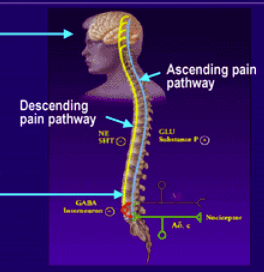How to Let go of Excessive Worry
Do you worry too much?
One of big reasons why we worry so much is because we are trained for left brained verbal thinking. We are not trained to feel! In fact, we are often taught to “Just be cool”, thus encouraging us to deny our emotions. But these emotions don’t go away on their own. They get lodged in our tissues to reek havoc in our mental and physical health as we age.
Also if we couldn’t count on our parents while young, then we might have inadvertently been trained to worry. After all, we had lots of responsibilities. We needed to make sure everything was taken care of, and we had a roof over our heads. And because the world wasn’t safe, we felt like we had to worry, because who else would be responsible?
But the constant worry causes us an incredible amount of stress. Relaxation is difficult or near impossible. It is hard to enjoy life when are worrying all the time!
So how do we turn it off?
Read MoreHow to Stay Informed Without Getting Depressed
I’ve always been troubled by massive injustices inflicted upon fellow citizens. In my quest to determine how to prevent a future Holocaust for example, I needed to understand what caused it. One of the most important lessons I learned in my college course, “Introduction to Political Freedom”, is that the most horrific injustices of the world occur when we are not paying attention and when we disengage.
Thus, I’m a big believer that it is essential to stay informed and engaged in what is going on in the world, and to do what you can to make it a better place.
But as an empath, staying informed and keeping engaged can be emotionally taxing and overwhelming. Every day I wake up, thinking about the state of our country, and how we can have peace and justice in this world. And often this obsession with the direction of our country leaves me in despair about the future.
But I know that I’m not alone, so after doing some research on the internet, I found some great advice which I’ll share below.
Read MoreWhen Expressing Anger is the Healthiest Choice
I grew up with an angeraholic. My father seemed to be critical and angry about everything, and much of that anger was directed towards me.
I decided at a young age that all of his anger wasn’t healthy and that I wasn’t going to maliciously unleash my anger at others just because they were easy targets.
But I was furious with him! He would scream at me for not working hard enough, for not being good enough in school, or any “hobbies” he’d chosen for me. Yet, when it came to get any support I needed, classes or tutoring so that I could live up to his expectations, there wasn’t enough money, or he “didn’t believe in spoiling me”. I felt like I was constantly under his personal surveillance program, designed to criticize me and undermine everything I tried to be or do.
Without a healthy outlet for that anger, I turned that anger inward towards myself.
Read MoreThe Dangers of Putting Yourself Last
I have a client that spent 35 years dedicated to helping her husband excel. She helped him organize his space, prioritize his health, and she kept him fed and the house cleaned so that he could concentrate on his career. She told herself that she was doing it because of her unselfish and undying love for him, even though he didn’t seem to appreciate her or her efforts. Meanwhile, he wasn’t affectionate with her, and was often distant and aloof. But as he distanced himself more, she would justify his actions to herself. She held on to hope that her marriage would turn around and that one day, he’d come home and tell her how much he loved her. Then he left her for a younger woman.
I had another client that regularly worked 60-70 hr weeks. She was a co-owner of the firm she worked with. While each person was responsible for a portion of handling the business, she frequently found herself taking responsibilities that her colleagues had neglected to fulfill. She was exhausted, and as she was getting older, she realized that she had been neglecting herself, and that it was time to prioritize herself!
 Another client was completely overloaded with responsibilities. She was the CEO of her company, and often found herself having to work late into the night. Then she’d come home, and take care of her elderly parent. She also managed several properties, and an Air B&B. She was stressed out, sleep deprived and having a hard time keeping track of all her responsibilities.
Another client was completely overloaded with responsibilities. She was the CEO of her company, and often found herself having to work late into the night. Then she’d come home, and take care of her elderly parent. She also managed several properties, and an Air B&B. She was stressed out, sleep deprived and having a hard time keeping track of all her responsibilities.
All 3 of these clients dedicated their lives to others and left themselves last. How did that impact their lives?
Read MoreThe Global Consequences of Ignoring our Mental Health
It saddens me terribly to say this, but I truly believe that in this country, we are facing an epidemic of cruelty. Forty years ago, I don’t think we could have ever imagined America as a country, where we would have an average of one mass shooting a day, where police would be regularly caught on tape beating up minorities, or where presidential candidates were allowed to openly incite violence towards anyone they didn’t like.
The reasons for this trend are many. I believe that rising inequality breeds greater unhappiness, and I’ve outlined the reasons in my article, “Does Inequality affect Your Happiness?” I also believe that as more of us compete for fewer resources, the greater need we have to prove our worth. If we aren’t careful, we can become less trusting. The need to survive can increase our tendency to discriminate against minorities, women, children, the elderly or people who are different than us.
But humans also have tremendous capacity to come together in crises. We have the power to work together, and respond to our collective suffering with empathy and compassion.
So what is the underlying difference between those that choose the path of hate vs. the path of compassion?
Read MoreWhy You Should Consider a Holistic Approach to Mental Health
Our Western medical system is set up to divide the brain from body. We treat mental and cognitive health, by addressing issues from our past, by seeing counselors, psychiatrists or neurologists. They focus either on psychological or the chemical, and occasionally the anatomical aspects of the brain that drive our pathology. But is that enough to make us mentally healthy? Sometimes, but I would argue that in order for the problem to go away (without a lifelong dependence on pharmaceutical drugs), the underlying causes need to be considered, and that they are rarely being examined through traditional Western medical care.

http://www.medscape.org/viewarticle/446132_3
As an epidemiologist who specialized in determining the risk factors that contribute or protect us from mental or cognitive disorders, I’ve always known that the Western medical approach of separating the brain from the body would be insufficient to help many people who suffer with psychiatric disorders and mental health challenges. After all, we are made up of more than just our head. There are both signals that go towards and away from brain described both by Eastern and Western medicine. Furthermore, we often identify feelings peripherally, in our stomach or heart, for example, rather than our brain!
Those of us who exercise, are keenly aware that both cardiovascular exercise and weight lifting increase can increase our self-esteem and elevate our mood. Many of us know, that we get more cranky when we haven’t eaten, when we are tired, sick or even at certain times of the month.
So here are just a few underlying causes that can affect brain health that are not typically considered, but should be, when you are struggling with any mental or psychiatric illness.
Read More








